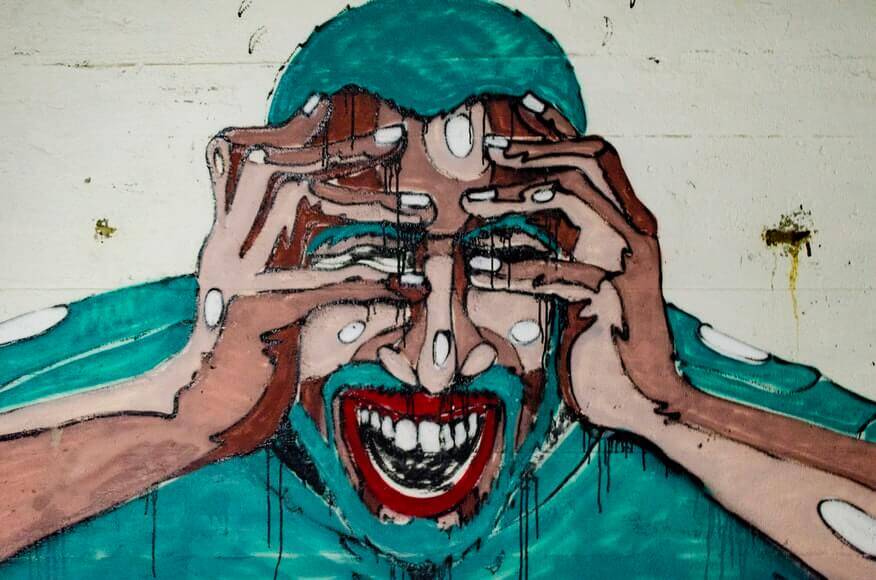
There is a famous novel in Spanish, Love In Times Of Cholera (El Amor En Tiempos De Cólera). It sat on my shelf for years, but I never read it, so I’m not familiar with the plot. However, the theme of love in hard times, romantic or otherwise, has stuck with me years later. Years ago, I suffered from pretty severe chronic pain in my neck and back. It was debilitating, and made it very difficult for me to fulfill my obligations as a university student. Today, thankfully, I have been pain free for almost five years. However, reflecting on those years, I recall just how difficult it was to spend time with people, to connect with people, and to love people. The truth is that many people simply do not understand what it’s like to live with chronic pain or an illness. When confronted with this reality, they tend to react in ways that make building good relationships with them, given the circumstances, even harder. I’ve transcribed a short clip by Jordan and Mikhaila Peterson, who was chronically ill herself, that illustrates what I’m talking about.
The Effect Of Chronic Illness On Social Relationships
M Peterson: If you have never experienced severe illness, you can’t understand it, even when you see it. And, sometimes, that means when you see it, it makes you angry. So, a lot of these poor suffering people who are chronically ill, who are going, “I’m hurt. I’m hurt. I’m hurt. Look how hurt I am.” People are just like “Stop it. Stop it. Stop it. I don’t want to be around that.” It’s probably some sort of evolutionary response to avoid infection–I don’t know what it is. But sick people get a lot of hate for being sick.
J Peterson: It’s a frustration, too, on the part of the people around them.
M Peterson: Sadness, right? And it’s a lot easier to be angrier at someone than sad.
J Peterson: And to understand what they’re going through, you have to allow yourself to feel that.
M Peterson: And sometimes if you can’t help, it’s easier being mad at them than being like, “Woah. Life is so unfair.”
It can be very hard to love others whenever they, intentionally or unintentionally, act in a way that damages us. Unfortunately, many chronically ill people, with pain or a more serious disease, find themselves on the receiving end of harsh treatment from the world–whether it owes to a predatory instinct in some people (like the lion who targets the rabbit with a broken leg); an evolutionary instinct not to get infected, as M Peterson pointed out; or just plain frustration or bewilderment. An illness or pain syndrome or disability makes love harder all by itself, and so the situation can become a double-edged sword when you factor in the element of people treating us differently.
A few months ago, I transcribed a YouTube clip by channel The School Of Life that talks about growing in understanding as a way to grow in love. When we understand why people act the way they do–as we instinctively do with with children–it can take away some of the shock value, disgust, or frustration we may feel toward their behavior.
With adults, on the other hand, confronted by nasty or terrible behavior, our thoughts do not, for understandable reasons, generally turn to imagining why it might have occurred. We are satisfied with nimble and compressed reasons–“Because they are an asshole.†“Because they’re crazy.†This will do for now. And, yet, it is always open to us to wonder why someone acted as they did. And here we are liable to stumble on an always provocative, and properly revolutionary, idea. The reason why little children and big people do wrong is, despite the differences in age and size, exactly the same.
Article
People often do not mean harm. (Many times they even mean well!) In those cases where people do mean harm, on the other hand, they were often harmed themselves, and are just acting out their own painful experiences. There is never an excuse for bad behavior, but understanding can be a powerful tool that aids in our endeavor to love them anyway.
If you’re reading this today and are dealing with a chronic pain syndrome, debilitating condition, or serious illness, my heart goes out to you. I don’t know exactly what you’re going through, but I know what it’s like to suffer severe pain–for years–in a world that largely does not seem to care or understand. [If you are interested, check out the link below as to what helped me get better.]
In the meantime, however, it may be helpful to lower your expectations of others. Some people are great toward us in our time of need. However, there are many people who cannot understand, and we cannot really fault them for it, because it is beyond both their experience and human ability to empathize. I am a person of faith. I believe God understands everyone, and if we have one person in our live who understands, too, we should consider ourselves lucky.
FYI, if you suffer from a chronic condition, I highly encourage you to check out My Healing Testimony After 5 Years Of Debilitating Neck Pain / Back Pain / Vocal Dysfunction.
For more, see the complete archive of articles on integrity.

